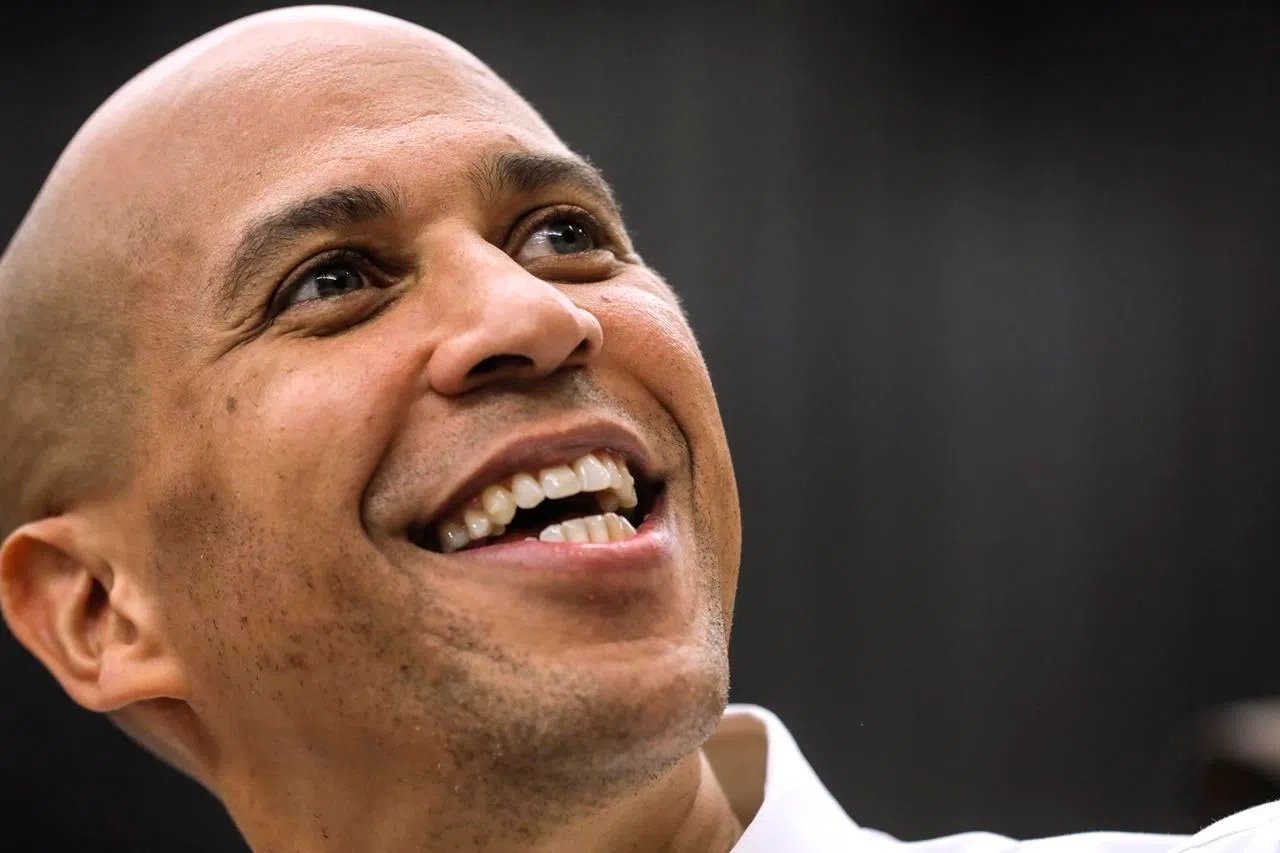
‘Love ain’t easy’: Booker brings upbeat vibe to 2020 fight
WASHINGTON — Cory Booker leaped into the 2020 presidential race on Friday with a call for Americans to unite in a time of bitter polarization while some of his Democratic rivals are taking a more combative stance as they vie to take on President Donald Trump.
Booker’s entry into the Democratic primary was steeped in history and symbolism, befitting his status as the second black candidate in a historically diverse field. Invoking the legacy of the national movements for civil rights and for women’s suffrage, the New Jersey senator urged a return to a “common sense of purpose” and cast his appeal to the nation’s better angels as an uplifting alternative to Trump.
The 49-year-old Booker told reporters outside his home in Newark that “love ain’t easy,” adding: “The people I admire are the people that lead by calling out the best of who we are and not the worst. So, I’m running for president because I believe in us. I believe in these values.”
Whether Democrats are in the mood to embrace Booker’s optimistic persona after two years of fuming about Trump’s presidency remains to be seen. With Massachusetts Sen. Elizabeth Warren running as a champion for the middle class in a fight against powerful interests, and California Sen. Kamala running on taking on Trump directly, Booker’s fate may hinge on a bet that the electorate will respond again to the soaring oratory that helped Barack Obama break through in 2008.


